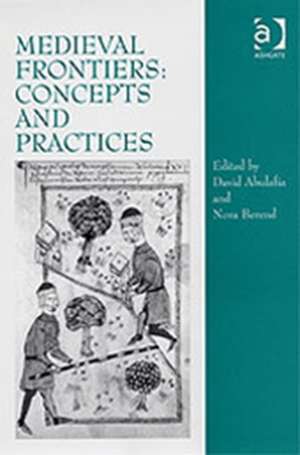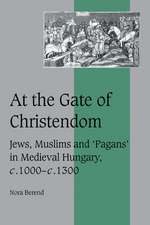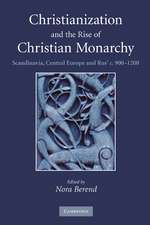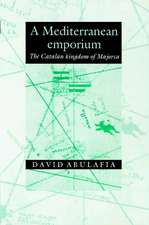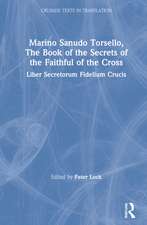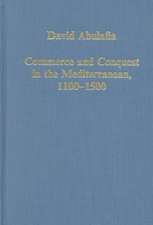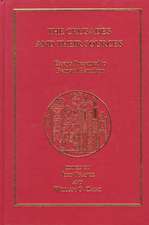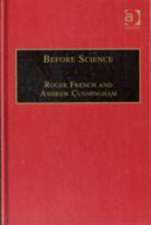Medieval Frontiers: Concepts and Practices
Autor David Abulafia, Nora Berenden Limba Engleză Hardback – 18 iun 2002
Preț: 237.65 lei
Preț vechi: 282.71 lei
-16% Nou
Puncte Express: 356
Preț estimativ în valută:
45.47€ • 47.73$ • 37.74£
45.47€ • 47.73$ • 37.74£
Carte tipărită la comandă
Livrare economică 10-24 aprilie
Preluare comenzi: 021 569.72.76
Specificații
ISBN-13: 9780754605225
ISBN-10: 0754605221
Pagini: 307
Dimensiuni: 156 x 234 x 23 mm
Greutate: 0.59 kg
Ediția:1
Editura: Taylor & Francis
Colecția Routledge
Locul publicării:Oxford, United Kingdom
ISBN-10: 0754605221
Pagini: 307
Dimensiuni: 156 x 234 x 23 mm
Greutate: 0.59 kg
Ediția:1
Editura: Taylor & Francis
Colecția Routledge
Locul publicării:Oxford, United Kingdom
Cuprins
Contents: Preface, Nora Berend; Introduction: Seven types of ambiguity c.1100-c.1500, David Abulafia; Crossing the frontier of 9th-century Hispania, Ann Christys; Emperors and expansionism: from Rome to Middle Byzantium, Jonathan Shepard; Byzantium's eastern frontier in the 10th and 11th centuries, Catherine Holmes; Were there borders and borderlines in the Middle Ages? The example of the Latin Kingdom of Jerusalem, Ronnie Ellenblum; Government and the indigenous in the Latin Kingdom of Jerusalem, Jonathan Riley-Smith; Latins and Greeks on Crusader Cyprus, Peter W. Edbury; Genuensis civitas in extremo Europae: Caffa from the 14th to the 15th century, Michel Balard; Granting power to enemy Gods in the chronicles of the Baltic Crusades, Raza Mazeika; The Blue Baltic border of Denmark in the High Middle Ages: Danes, Wends and Saxo Grammaticus, Kurt Villads Jensen; Hungary, the 'Gate of Christendom', Nora Berend; Boundaries and men in Poland from the 12th to the 16th century: the case of Masovia, Grzegorz Mysliwski; The frontiers of Church reform in the British Isles,1170-1230, Brendan Smith; Neolithic meets medieval: first encounters in the Canary Islands, David Abulafia; Index.
Recenzii
'...extensive and learned... timely, full of ideas, and in moving us beyond a predominantly national framework for the study of frontiers it reveals a wealth of relationships between different kinds of boundary that will keep us busy for some time to come.' Reviews in History '... Abulafia's introduction [...] is a tour de force, demonstrating immense range, erudition and imagination.' The International History Review
Descriere
In recent years, the 'medieval frontier' has been the subject of extensive research. But the term has been understood in many different ways: political boundaries; fuzzy lines across which trade, religions and ideas cross; attitudes to other peoples and their customs. This book draws attention to the differences between the medieval and modern understanding of frontiers, questioning the traditional use of the concepts of 'frontier' and 'frontier society'. It contributes to the understanding of physical boundaries as well as metaphorical and ideological frontiers, thus providing a background to present-day issues of political and cultural delimitation. The articles span Europe from the Baltic to Iberia, from the Canary Islands to central Europe, Byzantium and the Crusader states, and are preceded by an important introduction by David Abulafia.
